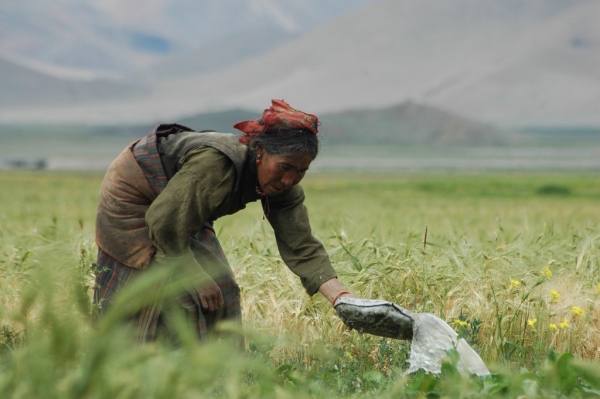Mountain Futures Initiative to chart a brighter future for the world's mountainous areas

The Mountain Futures Initiative (MFI) was proposed during the Conference by the three institutes of the Chinese Academy of Sciences (Kunming Institute of Botany, Chengdu Institute of Mountain Hazards and Environment, and the Institute of Geography and Natural Resources Research), and the World Agroforestry Centre (ICRAF).
“Our current visions of the future are often dystopian, focusing too much on what will go wrong,” said the World Agroforestry Centre’s principal scientist and regional coordinator Dr Jianchu Xu. “Instead, the Mountain Futures Initiative wants to focus on what can be done, on a positive future. We want to combine local knowledge and scientific research to support innovations in knowledge, technology and institutions for a brighter montane future.”
The Initiative will do so via three mechanisms: First, by exploring ‘seeds’ of a good Anthropocene. These are smart, grassroots ideas and innovations that help people cope with a changing climate in the mountains. Second, by building multi-stakeholder research-for-development platforms. And third, by scaling up such good practices that are aimed at sustainable livelihoods, environmental integrity and social justice.
Kunming Institute of Botany’s deputy director Yongping Yang added that the mountains’ natural capital including its genetic resources are nature’s endowment for developing niche products for local livelihoods and economy.
Linxiu Zhang at the Center for Chinese Agricultural Policy believes that human capital is the key, and we found that the nutritional status of children in rural areas is related to their intellectual development. Dr Wei Deng at the Chengdu Institute of Mountain Hazards and Environment said that China ought to take an exemplary role in developing better futures for mountainous regions, as China is a ‘mega-country’—both in terms of mountainous areas and population.
The Chinese Ministry of Agriculture’s Hongyuan Xu added that the initiative fit well in the Chinese government’s call for joint action and south-south cooperation within the One Belt One Road Initiative. Nisar Memon, former minister in the Pakistani government, agreed: “we cannot partition mountains: they straddle borders and cross divides.”
The Mountain Futures Conference was co-organized by United Nations Environment Programme (UNEP), United Nations Educational, Scientific and Cultural Organization (UNESCO), the International Centre for Integrated Mountain Development (ICIMOD), the Centre for Development and Environment at the University of Bern (CDE), the University of Central Asia, the Mountain Research Initiative (MRI), and Helvetas Swiss Intercooperation. It was funded by the International Development Research Centre (IDRC), the Swiss Cooperation Office (SDC), Partnerships for Community Development (PCD), and the Hans Foundation, among others.

Facebook comments